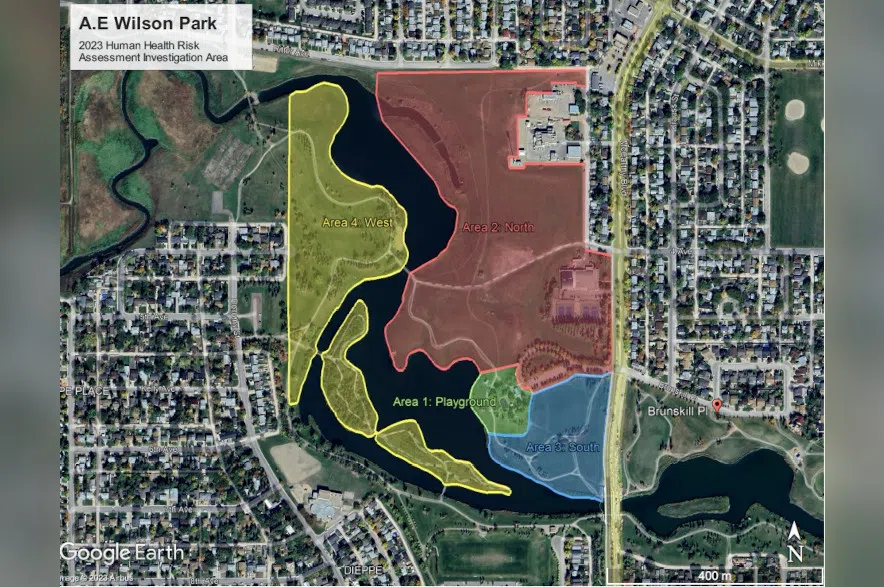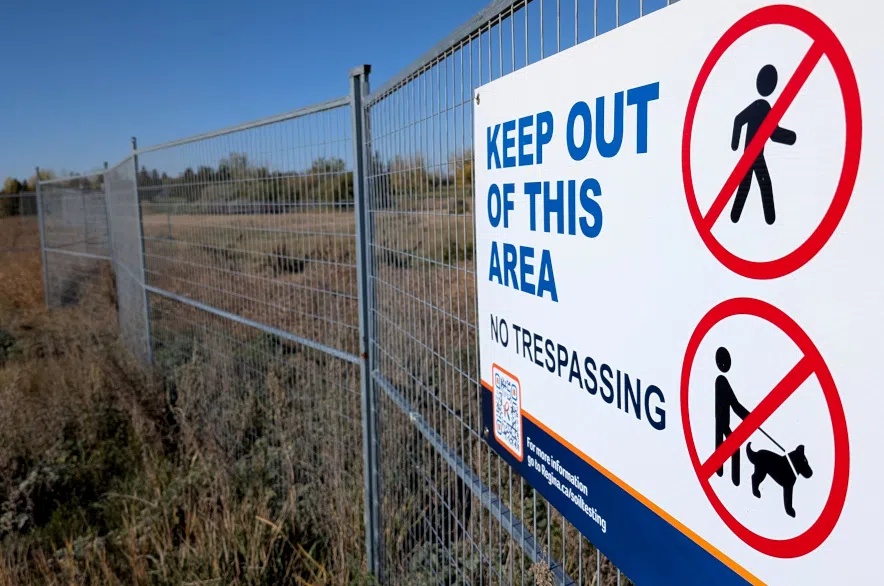It’s unclear how much longer the chain link fences blocking off a portion of A.E. Wilson Park in Regina’s northwest will stay up.
The area was blocked off in April 2023 after soil contamination was found in then park. According to the city, heavy metals and hydrocarbons were found at levels that could be harmful to animals or humans if disturbed, and later testing found high levels of lead. It was believed the contamination happened because the park was built on land formerly occupied by a landfill and wastewater treatment plant.
Read more:
- Regina confirms 50 per cent surcharge on leisure program fees for non-residents
- Two major constructions projects are nearly done: City of Regina
- City of Regina applying for provincial disaster relief funding after September storm
The city had said it found the contamination when starting work on a construction project.
The southwest sewer system upgrade project included the installation of a large sewer line between the McCarthy Boulevard pump station and the Rick Hansen Optimist Playground. It ran right through the contaminated area where the wastewater treatment plant and garbage incinerator used to be.
That summer, the city did more testing and found varying levels of lead contamination in the park.

The City of Regina split up A.E. Wilson into four areas, depending on the levels of contamination found in the soil. The majority of Area 2 was fenced off after the latest round of testing. (City of Regina/Submitted)
The areas around the playground and south of the playground, including the parking lot, were found to be safe for all ages.
Testing from the north side of the park found the shallow soil had lead at levels that pose “an unacceptable risk to human health,” and the fencing was expanded to include the majority of that area.
Areas of the park on the west side of the creek, including the two islands, showed lead levels just above the acceptable amount for toddlers, so the city put up signs to warn the public about the risk.
The biggest risk from lead in the soil comes from eating it, but there could also be a negative impact from prolonged exposure.
In October, the City of Regina said it finished remediation for a part of the areas in question, which was done in relation to the construction for the southwest sewer upgrade. The plan included putting clean soil in the top layer of the construction area.
This fall, the city said it is planning to perform environmental testing for the remaining areas, which will help determine whether more remediation needs to be done or if parts of the park can be opened up.
According to the city’s website, the fences will stay up until testing shows the areas are safe or remediation is finished.











